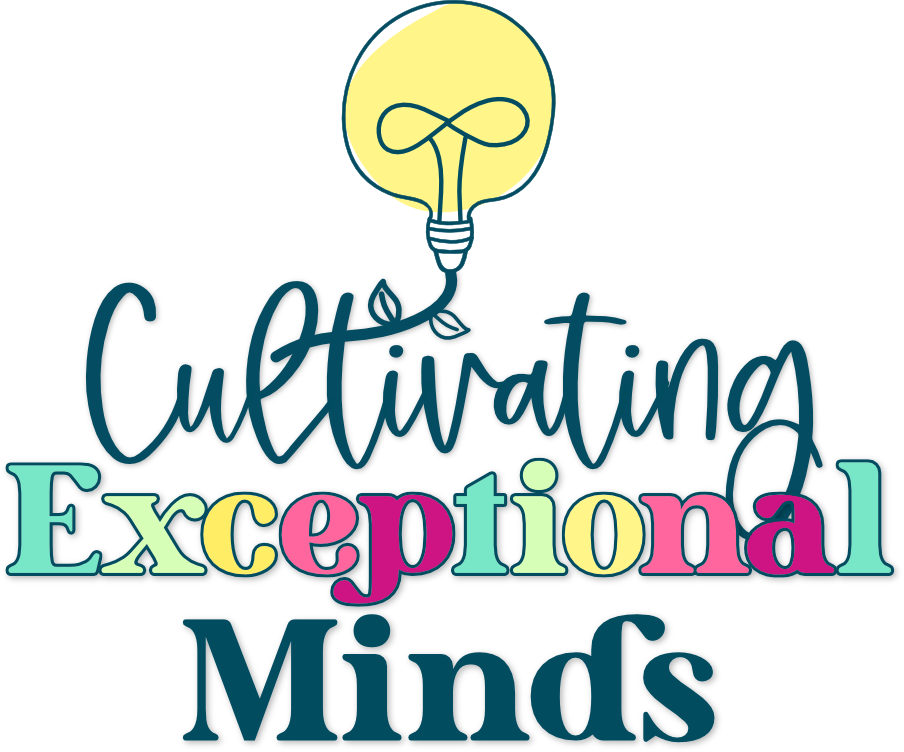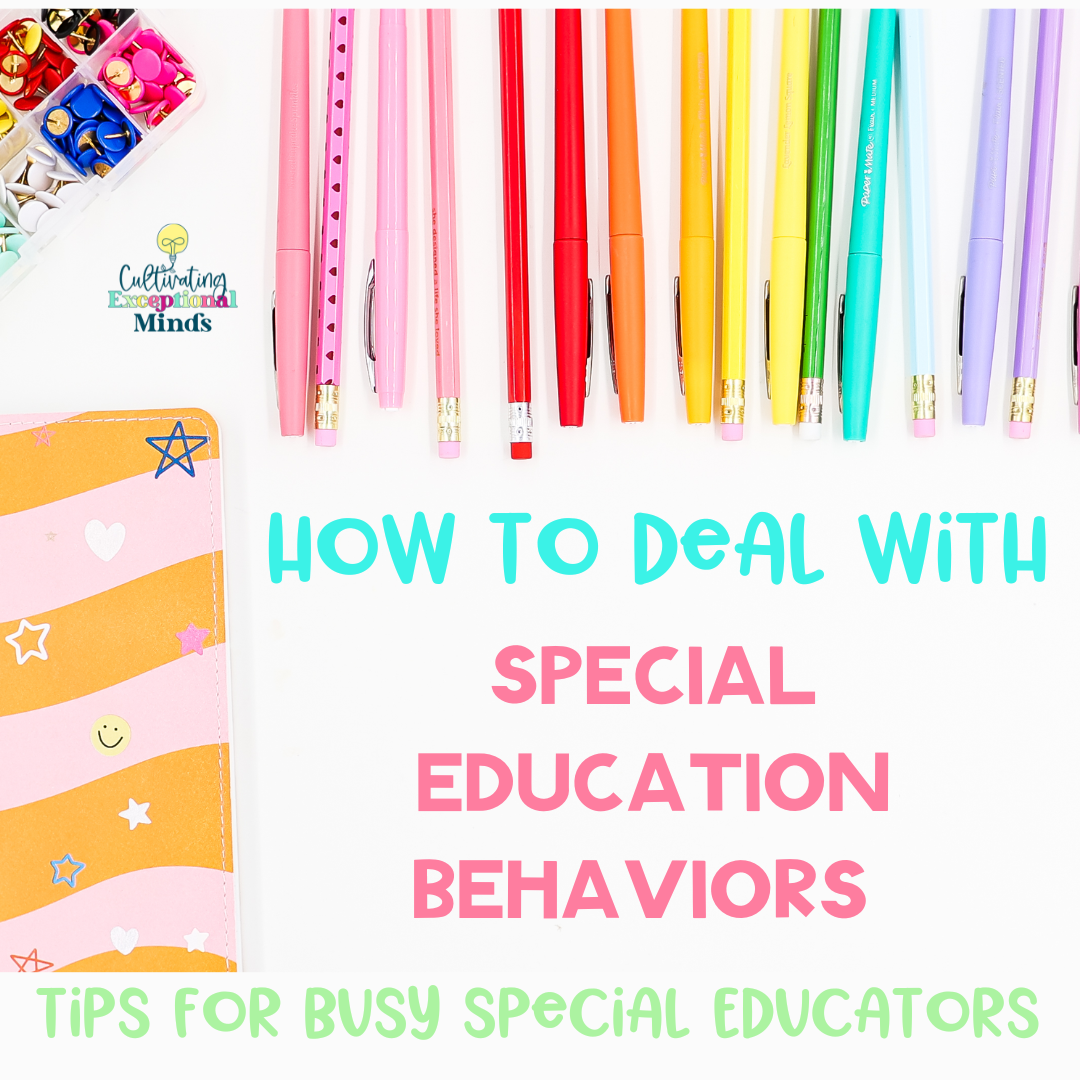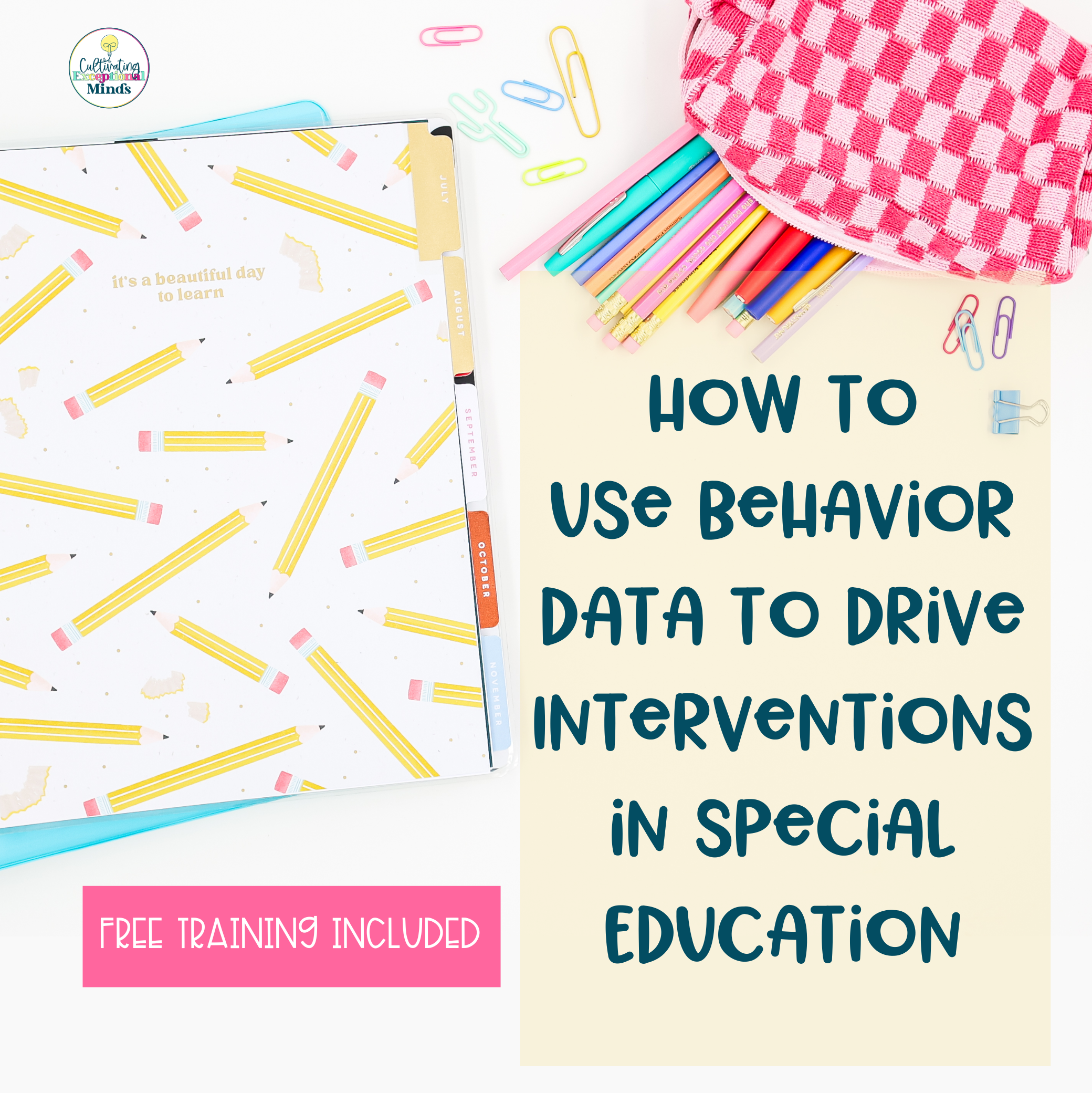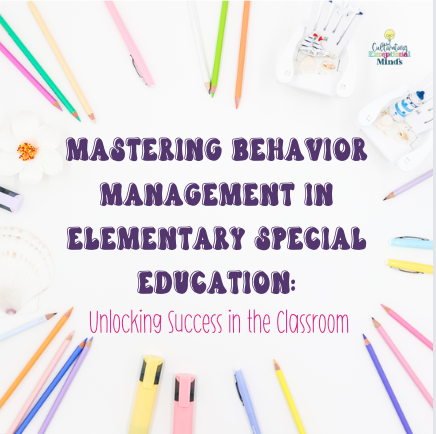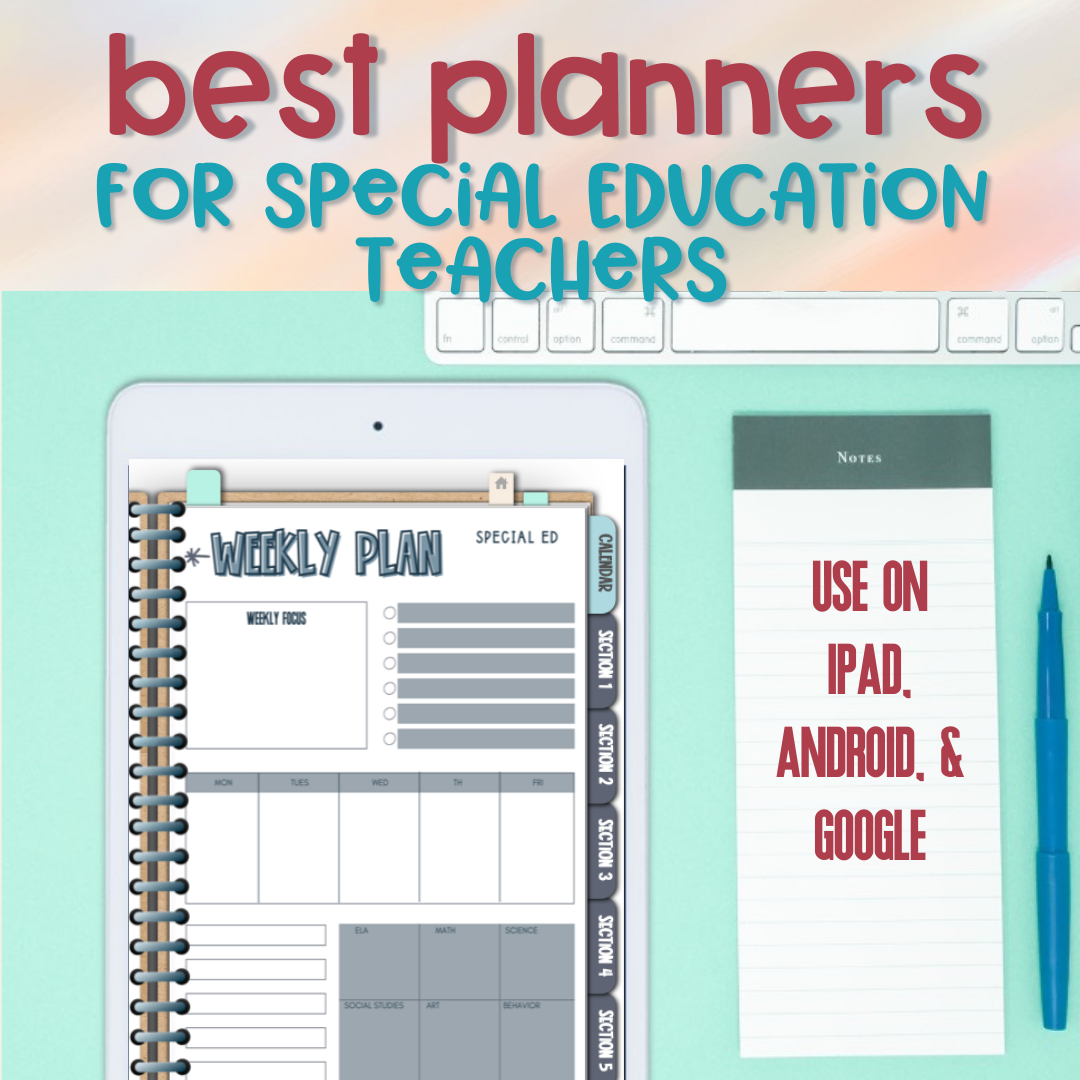As special educators, we recognize the importance of meeting the diverse needs of our students and creating an inclusive learning environment especially with special education behaviors tips for busy special educators. Throughout the day, we will explore practical strategies and empowering insights to help you effectively manage behaviors in your classroom.
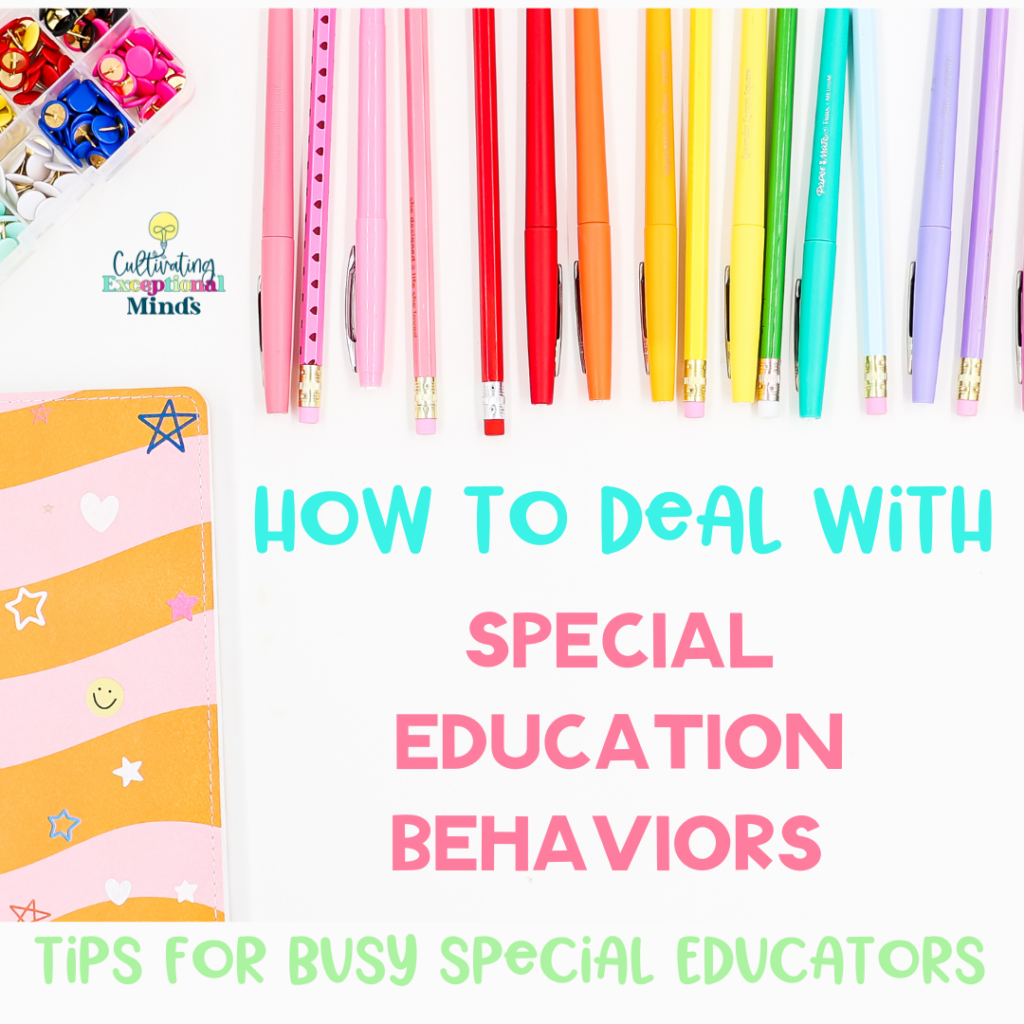
Understand the Root Cause of Behaviors
Identifying the underlying reasons for challenging behaviors is essential. Whether it’s sensory needs, communication difficulties, or emotional regulation issues, understanding the root cause helps you address the behavior more effectively.
Listen to our podcast on understanding and addressing challenging behaviors: Overcome Classroom Behaviors with These Tips.
Implement Positive Behavior Supports
Positive behavior supports (PBS) are evidence-based approaches that help create a supportive learning environment. By focusing on reinforcing positive behaviors, you can reduce the occurrence of challenging behaviors and promote a positive classroom culture.
Unlock the power of PBS in our latest podcast episode: Unlocking the Power of Positive Behavior Supports.
Use Visual Supports and Clear Expectations
Visual supports, such as behavior charts and social stories, provide clear expectations and help students understand what is expected of them. Consistently using these tools can significantly reduce anxiety and improve behavior.
For more practical tips on behavior management, listen to our podcast episode: Behavioral Strategies for the Special Education Classroom.
Develop Individualized Behavior Plans
Creating individualized behavior intervention plans (BIPs) tailored to each student’s needs can make a significant difference. These plans should include specific strategies and goals to address challenging behaviors effectively.
Check out our Daily Behavior Chart Calendars on TPT to track and monitor student behavior: Daily Behavior Chart Calendars.
Create a Sensory-Friendly Environment
A sensory-friendly classroom can help students self-regulate and reduce challenging behaviors. Incorporate sensory tools and create calming spaces where students can go when they need a break.
Discover creative sensory room ideas in our latest blog post: Sensory Room Ideas for Special Education.
Foster Strong Communication with Parents
Regular communication with parents is crucial for consistent behavior management. Share strategies and progress with parents to ensure a collaborative approach between home and school.
Get organized with our Special Education Teacher Back-to-School Form on TPT: Special Education Teacher Back-To-School Form.
Ready to enhance your behavior management strategies with these special education behaviors- tips for busy special educators? Explore our comprehensive resources and connect with our community for more tips and support. Follow me on social media for more insights and exclusive freebies!
How visual supports can improve behavior management in special education
In the world of special education, How visual supports can improve behavior management in special education classrooms can be one…
How to Use Behavior Data to Drive Interventions in Special
As special education teachers, we understand that managing student behavior is one of the most challenging and rewarding parts of…
SEL activities for emotional awareness in special education classrooms
As special education teachers, we know how crucial it is to teach our students not only academic skills but SEL…
Positive behavior supports in special education classrooms:
Positive behavior supports in special education classrooms That Actually Work: Real-World Tips for Teachers Teaching special education students comes with its…
Special Education Behaviors – Tips for Busy Special Educators
As special educators, we recognize the importance of meeting the diverse needs of our students and creating an inclusive learning…
Mastering Behavior Management in Early Elementary Special Education: Unlocking Success
Unlocking success in the classroom starts with effective behavior management. As a special education teacher, you understand the importance of…
Follow and Connect:
- Instagram: @cultivatingexceptionalminds
- TikTok: @cultiv8exceptionalminds
- Blog: Cultivating Exceptional Minds Blog
- Etsy (Sped Stickers & Tees): Shop Now
- Podcast: Be the Exception
- TPT Store: Cultivating Exceptional Minds on TPT
Additional Resources:
- Behavior management made easier! Check out our blog category dedicated to behavior tips: Behavior Tips
- Mastering Behavior Management in Early Elementary Special Education: Read the blog post
- Explore our curated collection of resources on Amazon: Visit our shop
- Looking for behavior management ideas? Check out our Behavior Sticker pack on Etsy: Behavior Sticker Pack
By implementing these strategies and utilizing the resources provided, you can create a supportive and structured environment that promotes positive behaviors and student success. Remember, consistency and understanding are key to effective behavior management. You’ve got this!
